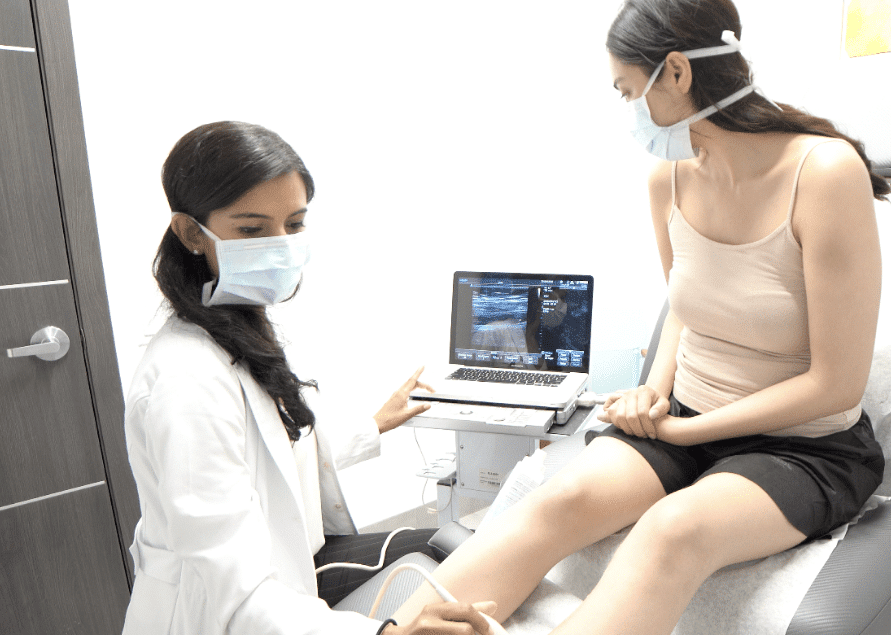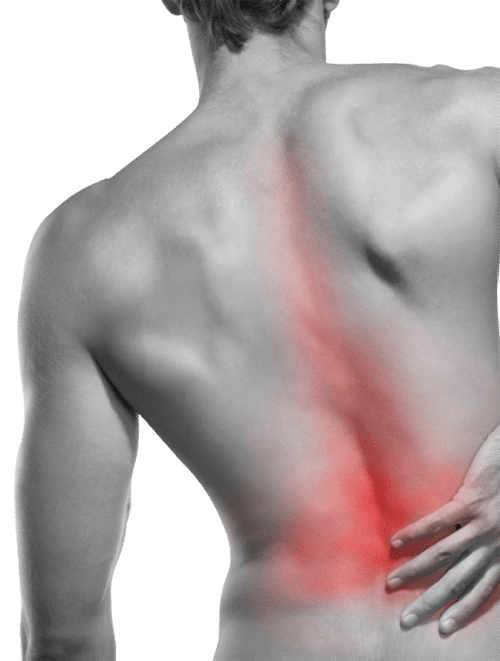Are you suffering from back pain that just won’t seem to go away? If you’re in New Jersey and dealing with back pain, it’s time to take action. At New Jersey Back Center, we specialize in providing minimally invasive, non-opioid, and non-surgical pain treatments. We have multiple state-of-the-art back centers in New Jersey, including Paramus, Clifton, and Woodland Park. Please schedule an appointment at your nearest back center in New Jersey.
1. Minimally Invasive Pain Treatments
One of the primary reasons to choose New Jersey Back Center for your back pain treatment is our commitment to minimally invasive procedures. Unlike traditional surgical methods that can be highly invasive and require lengthy recovery times, our minimally invasive treatments offer a quicker and less painful path to relief.
Whether you’re dealing with a pinched nerve, a compression fracture, or any other source of back pain, our specialists use advanced techniques like nerve blocks, steroid injections, and viscosupplementation to target the root cause of your discomfort. These procedures minimize damage to surrounding tissues and reduce the risk of complications.
Benefits of Minimally Invasive Treatments:
- Faster Recovery: Minimally invasive procedures typically result in shorter recovery times compared to traditional surgery. You can return to your daily activities sooner.
- Reduced Pain and Discomfort: These procedures are designed to minimize trauma to surrounding tissues, leading to less post-operative pain and discomfort.
- Smaller Incisions: Minimally invasive techniques require only small incisions, reducing the risk of scarring and infection.
- Lower Risk of Complications: With less invasive procedures, the risk of complications such as infection, bleeding, and anesthesia-related issues is significantly reduced.
- Outpatient Options: Many minimally invasive treatments can be performed on an outpatient basis, eliminating the need for hospitalization and reducing healthcare costs.
- Preservation of Healthy Tissues: These procedures aim to target the source of the problem while preserving as much healthy tissue as possible.
- Improved Cosmetic Outcomes: Smaller incisions and minimal scarring can lead to better cosmetic results.
- Customized Approach: Minimally invasive treatments can be tailored to the specific needs of the patient, ensuring a personalized and effective approach to pain management.
- Less Dependency on Medications: By addressing the root cause of the pain, minimally invasive treatments may reduce the need for pain-relieving medications, including opioids.
- Enhanced Quality of Life: With quicker recovery and reduced pain, patients often experience an improved quality of life and the ability to resume their normal activities sooner.
Minimally Invasive Back Pain Treatments Include:
- Epidural Steroid Injections: These injections are a common and effective minimally invasive treatment for back pain. They involve the precise delivery of anti-inflammatory medication directly into the epidural space surrounding the spinal cord. This targeted approach reduces inflammation, swelling, and pressure on spinal nerves.
- Facet Joint Injections: Facet joint injections are utilized to address back pain stemming from issues within the facet joints of the spine, which can be caused by conditions like arthritis or facet joint syndrome. During the procedure, medication is injected directly into the affected facet joint. This helps to alleviate inflammation and block pain signals originating from the joint.
- Nerve Blocks: Nerve blocks are an essential component of minimally invasive pain management. These injections target specific nerves responsible for transmitting pain signals. By delivering local anesthetic or anti-inflammatory medication near or directly into the nerves, nerve blocks interrupt the transmission of pain. Nerve blocks can provide both diagnostic information and therapeutic relief.
- Radiofrequency Ablation (RFA): Radiofrequency ablation is a minimally invasive procedure used to provide longer-lasting relief from chronic back pain. It utilizes radiofrequency energy to create heat and disrupt the pain-signaling nerves. RFA is often recommended for patients with conditions such as facet joint pain or sacroiliac joint pain, where other conservative treatments may not provide lasting relief. This procedure can offer months to years of relief, reducing the need for frequent interventions.
2. No Opioids, No Surgeries
In an era when opioid addiction has become a national crisis, it’s crucial to find pain management solutions that don’t rely on these potentially harmful drugs. At New Jersey Back Center, we take pride in offering non-opioid treatments. We understand the dangers associated with opioids and prioritize alternative approaches to help you manage your pain effectively.
Moreover, we also avoid surgeries. Surgery can be invasive, expensive, and require extensive recovery periods. Our team of specialists is dedicated to exploring non-surgical options first, providing you with relief without the need for an operation or extended downtime.
Why We Strongly Avoid Opioids:
- Addiction Potential: Opioid medications are highly addictive and can lead to physical and psychological dependence, putting patients at risk of developing substance use disorders.
- Tolerance: Over time, individuals on long-term opioids may require higher doses to achieve the same level of pain relief, increasing the risk of overdose and other adverse effects.
- Overdose: Opioid overdose is a serious concern, as these drugs can slow down the central nervous system to a dangerous extent, leading to potentially fatal consequences.
- Sedation and Impaired Function: Opioids can cause drowsiness, sedation, and impaired cognitive function, affecting a patient’s ability to drive, work, or perform daily tasks safely.
- Constipation: Opioid-induced constipation is a common side effect that can significantly reduce a patient’s quality of life and may require additional medications to manage.
- Nausea and Vomiting: Opioids often cause nausea and vomiting, which can lead to discomfort and interfere with the patient’s ability to maintain a balanced diet.
- Respiratory Depression: High doses of opioids can slow down breathing to a dangerous degree, posing a severe risk to patients, especially those with respiratory conditions.
- Withdrawal Symptoms: When opioid therapy is discontinued, patients may experience withdrawal symptoms such as muscle aches, anxiety, insomnia, and cravings.
- Negative Impact on Mental Health: Long-term opioid use has been associated with increased rates of depression, anxiety, and other mental health issues.
Drawbacks of Back Surgeries:
- Invasive Nature: Back surgeries typically involve significant tissue disruption and invasive procedures, leading to prolonged recovery times and higher risks of complications.
- Postoperative Pain: Surgeries often result in postoperative pain, which may require strong pain medications, including opioids, during the recovery period.
- Potential for Infection: Surgical procedures carry a risk of infection, which can lead to extended hospital stays, the need for antibiotics, and further medical interventions.
- Scar Tissue Formation: Following surgery, scar tissue can form, potentially causing nerve compression or limiting spinal flexibility, which can lead to ongoing discomfort.
- Rehabilitation and Physical Therapy: After surgery, patients often require extensive rehabilitation to regain strength and mobility, which can be time-consuming.
- Limited Success Rates: The success of back surgeries can vary, and there is no guarantee that the procedure will provide the desired level of pain relief.
- Risk of Complications: Surgical procedures carry inherent risks, including bleeding, blood clots, anesthesia-related complications, and damage to surrounding structures.
- Long Recovery Period: Recovery from back surgery can be protracted, requiring weeks to months of limited physical activity and restrictions on daily life.
- Financial Costs: Back surgeries can be expensive, with costs that include hospital stays, surgeon fees, anesthesia, and rehabilitation.
3. Accurate Diagnosis of the Root Cause
Effective treatment begins with a precise diagnosis, and that’s exactly what you can expect at New Jersey Back Center. We understand that not all back pain is the same, and there are various underlying causes. By pinpointing the root cause, we can tailor a customized treatment plan that directly addresses your unique condition.
Methods Used for Accurate Back Pain Diagnosis:
- Medical History: A thorough review of the patient’s medical history, including past injuries, surgeries, and underlying medical conditions, can provide valuable insights.
- Physical Examination: A physical examination can help identify physical abnormalities, assess spinal alignment, and pinpoint areas of tenderness or discomfort.
- X-rays: X-ray imaging can reveal structural abnormalities such as fractures, bone spurs, or degenerative changes in the spine.
- MRI (Magnetic Resonance Imaging): MRI scans provide detailed images of soft tissues, including discs, nerves, and muscles, making them particularly useful for identifying issues like herniated discs, spinal stenosis, or nerve compression.
- CT (Computed Tomography) Scans: CT scans offer cross-sectional views of the spine and can help detect bony abnormalities, fractures, or structural issues.
- EMG (Electromyography): EMG measures electrical activity in muscles and can help diagnose conditions affecting the nerves and muscles, such as radiculopathy or neuropathy.
- Epidural Injections: Diagnostic epidural injections involve the injection of a local anesthetic into the epidural space to temporarily alleviate pain and confirm the source of pain.
- Facet Joint Injections: Similar to epidural injections, facet joint injections can help diagnose facet joint-related pain by providing temporary relief through the injection of local anesthetic.
- Laboratory Tests: Blood tests may be performed to rule out systemic conditions that could contribute to back pain, such as infections or autoimmune diseases.
- Discography: Discography is a procedure in which contrast dye is injected into the intervertebral discs to identify disc-related pain, such as disc tears or degeneration.
4. Board-Certified Interventional Pain Specialists
When it comes to your health and well-being, you deserve the best care possible. At New Jersey Back Center, our team is led by board-certified interventional pain specialists who have undergone rigorous training and maintain the highest standards of expertise in the field. You can trust that you’re in capable hands when you choose us for your back pain care.
Reasons to Choose Board-Certified Pain Specialists:
- Advanced Training: Board-certified pain specialists undergo extensive and rigorous training beyond their medical degrees. This specialized training equips them with in-depth knowledge of pain management techniques, ensuring they are experts in the field.
- Comprehensive Assessment: Board-certified pain specialists conduct thorough evaluations, considering the physical, psychological, and social aspects of a patient’s pain. This holistic approach helps identify the root causes and contributing factors of pain.
- Minimally Invasive Techniques: Pain specialists prioritize minimally invasive interventions whenever possible, reducing the need for surgical procedures and their associated risks.
- Patient Education: Pain specialists take the time to educate patients about their conditions, treatment options, and self-management strategies. Informed patients are better equipped to actively participate in their pain management.
5. Convenient Locations
We understand that accessibility is crucial when seeking medical care, which is why New Jersey Back Center has multiple convenient locations throughout the state. Whether you’re in Clifton, West Orange, Paramus, or Woodland Park, you can find a clinic near you.
New Jersey Back Center Locations:
- Clifton: 1117 US-46, Suite 205: Situated on Route 46-E, just off NJ-3.
- West Orange: 445 Pleasant Valley Way: Located in the same medical office as Twinboro Physical Therapy and Dr. Michael Rieber/Orthopedics Unlimited.
- Paramus: 140 NJ-17, Suite 269: Located just off NJ-17, next door to Bob’s Furniture.
- Woodland Park: 1167 McBride Avenue, Suite 200: Located near Garden State Plaza.
6. Free Insurance Verification
Finances should never be a barrier to receiving the care you need. At New Jersey Back Center, we offer free insurance verification before your appointment. This ensures that you can make informed decisions about your healthcare and budget effectively for your treatment.
Contact New Jersey Back Center today to benefit from our minimally invasive, non-opioid, and non-surgical pain treatments. With convenient locations and free insurance verification, we’re here to support you on your journey to a pain-free future. Don’t wait; take the first step toward a better quality of life today — schedule your appointment.






